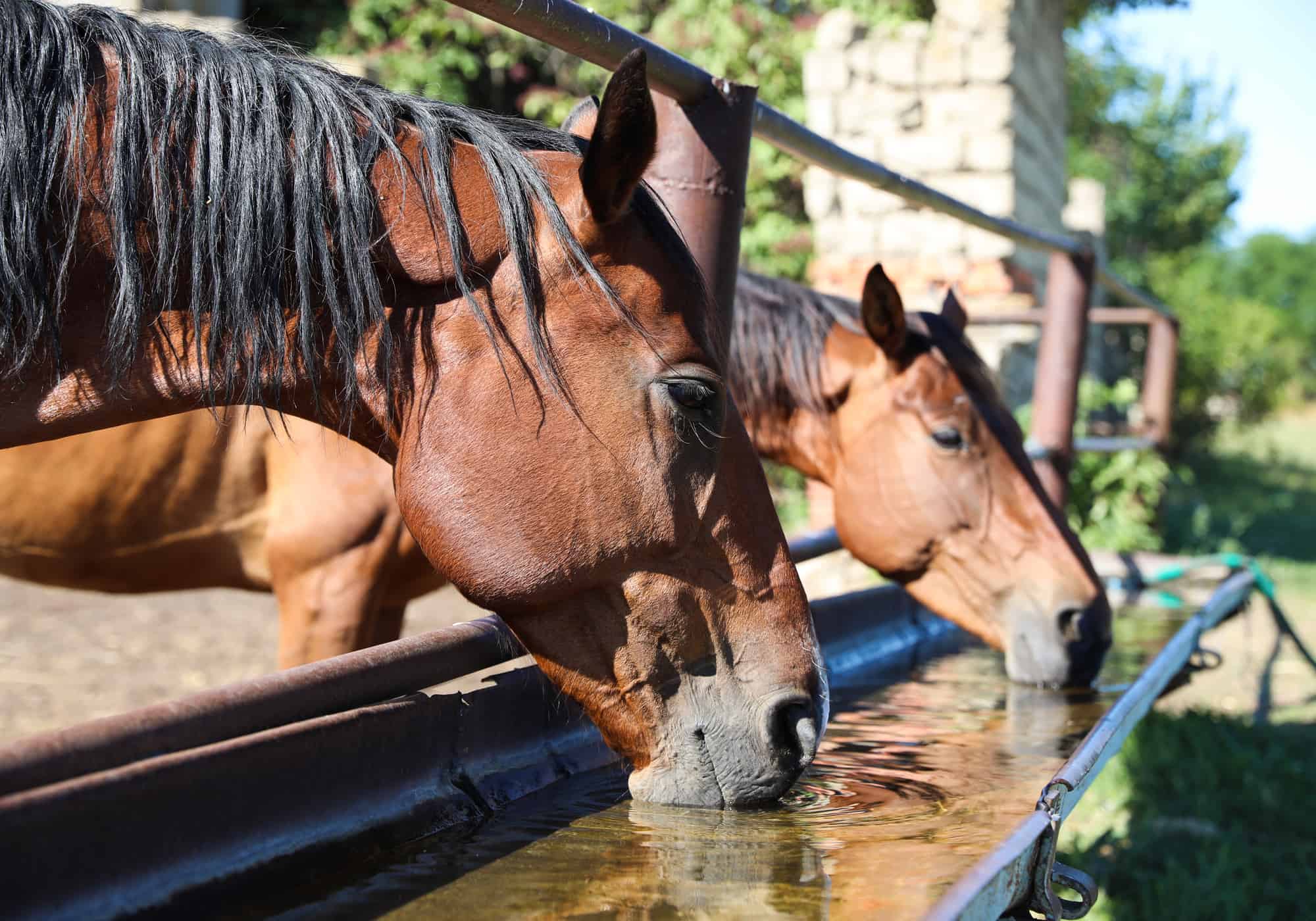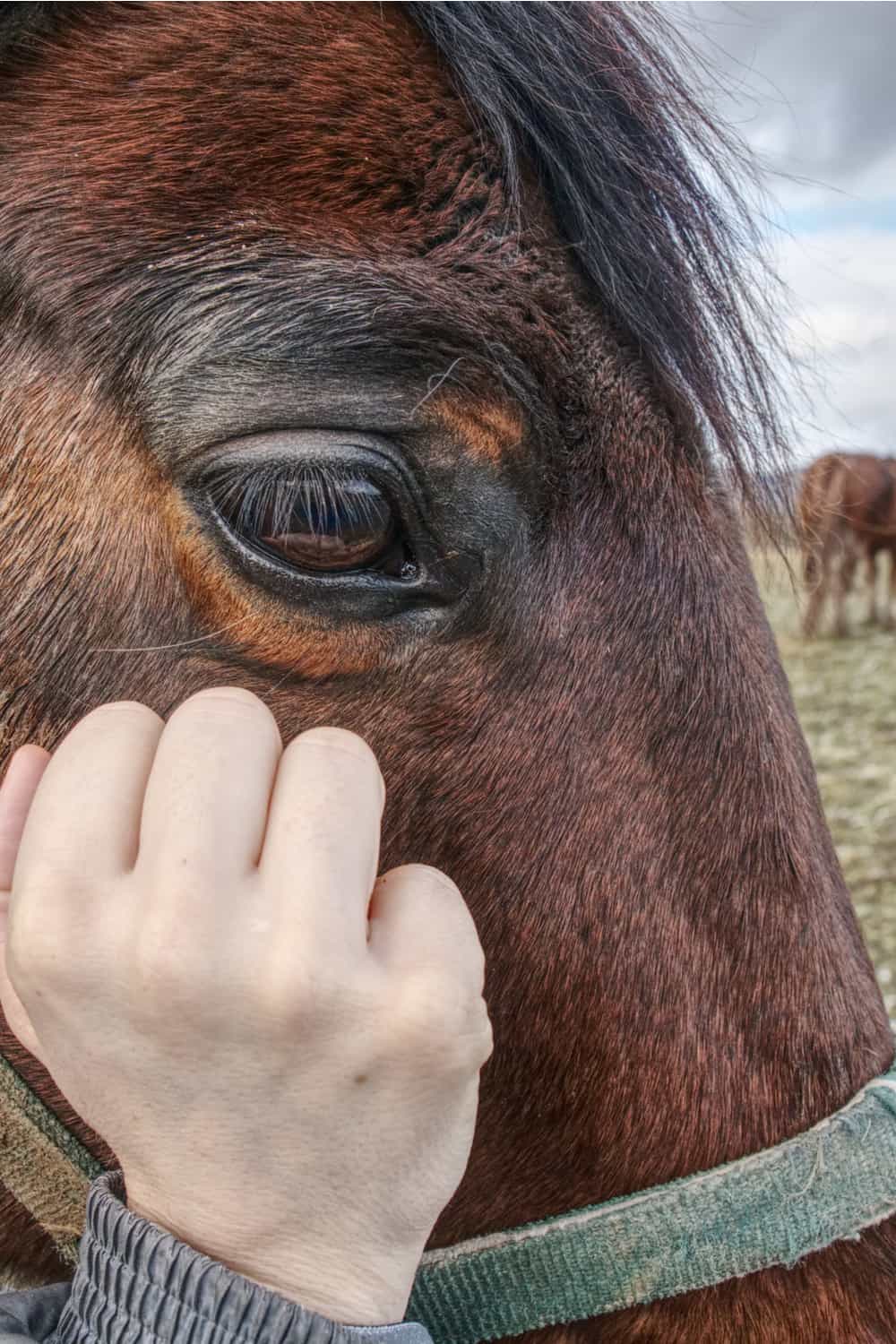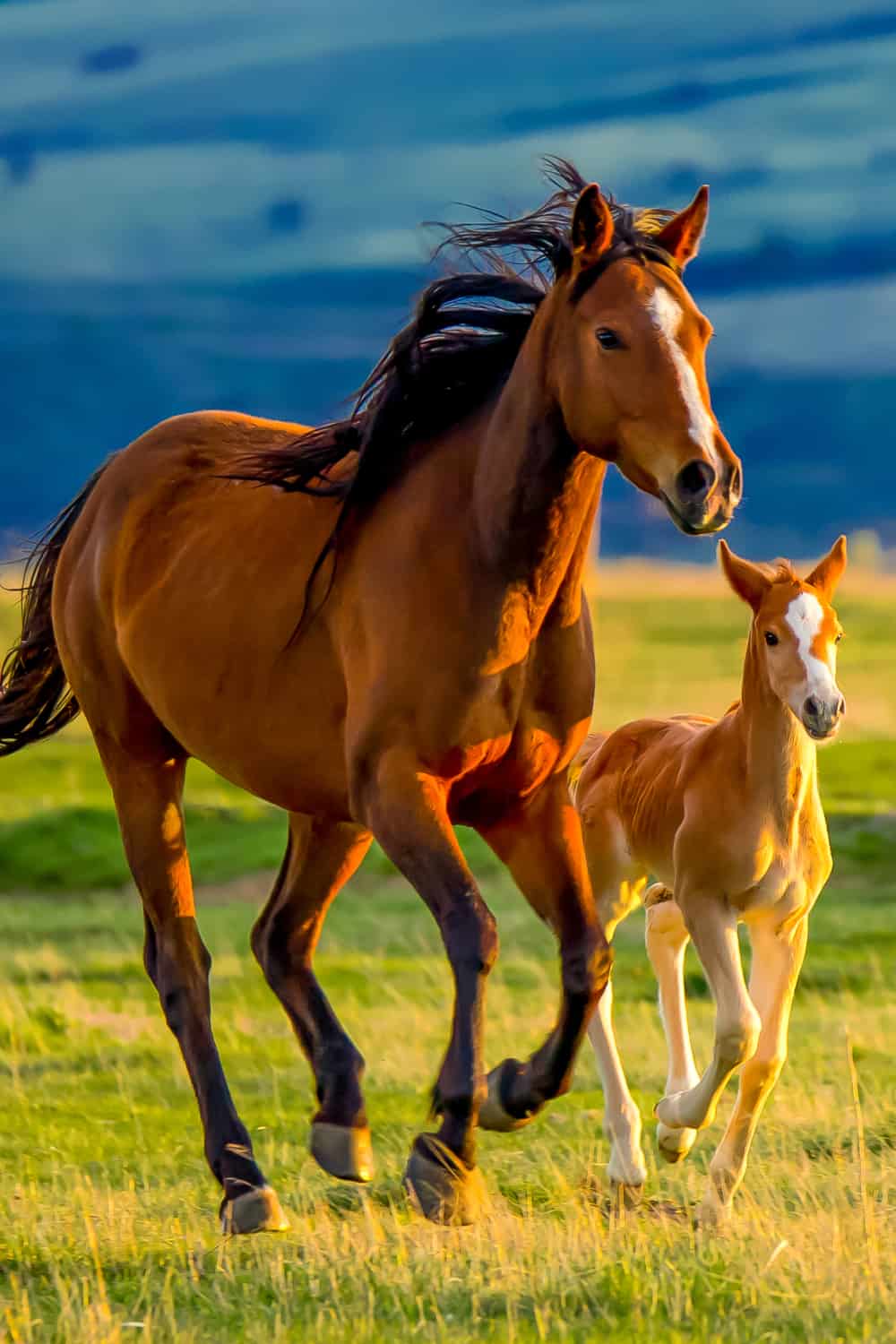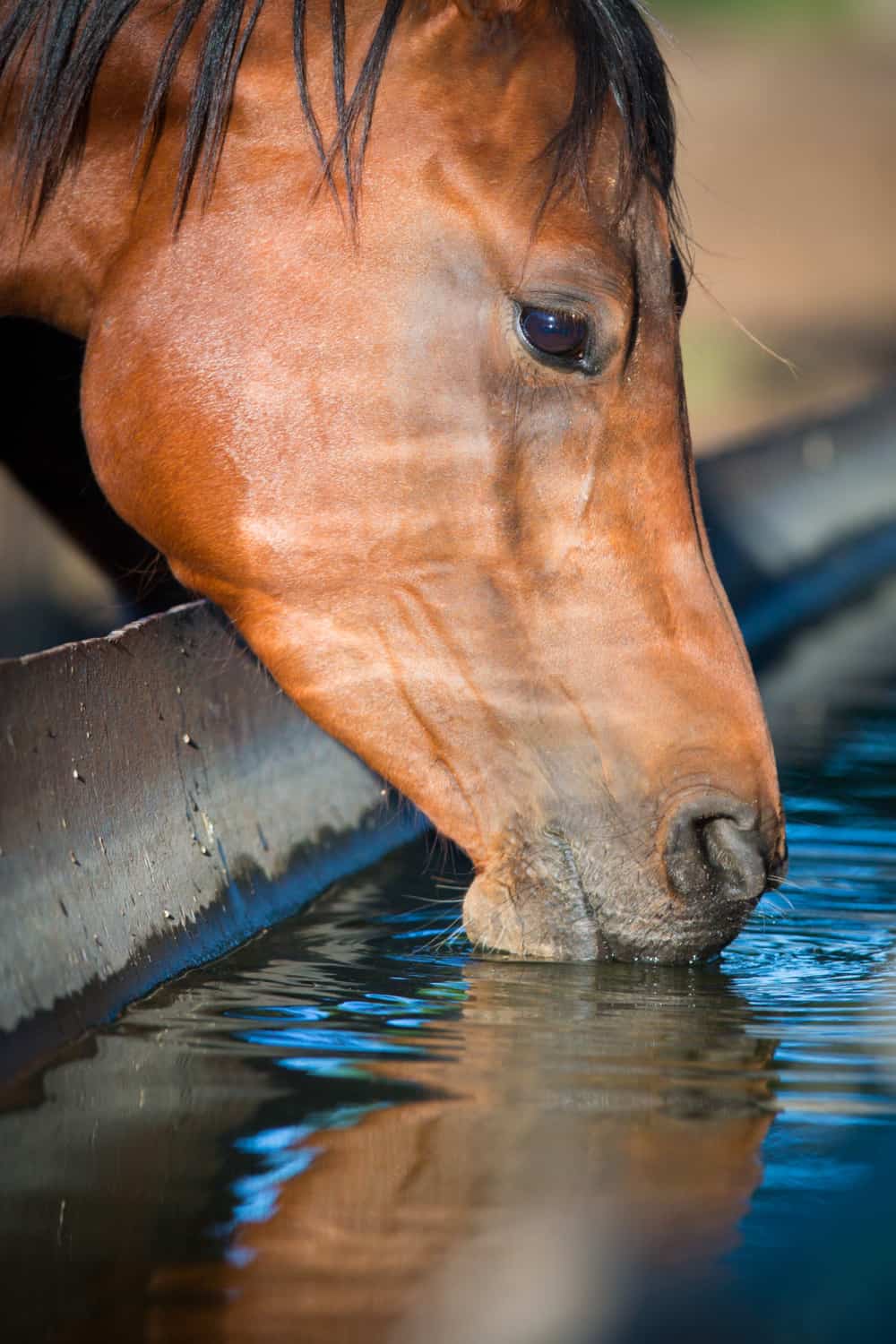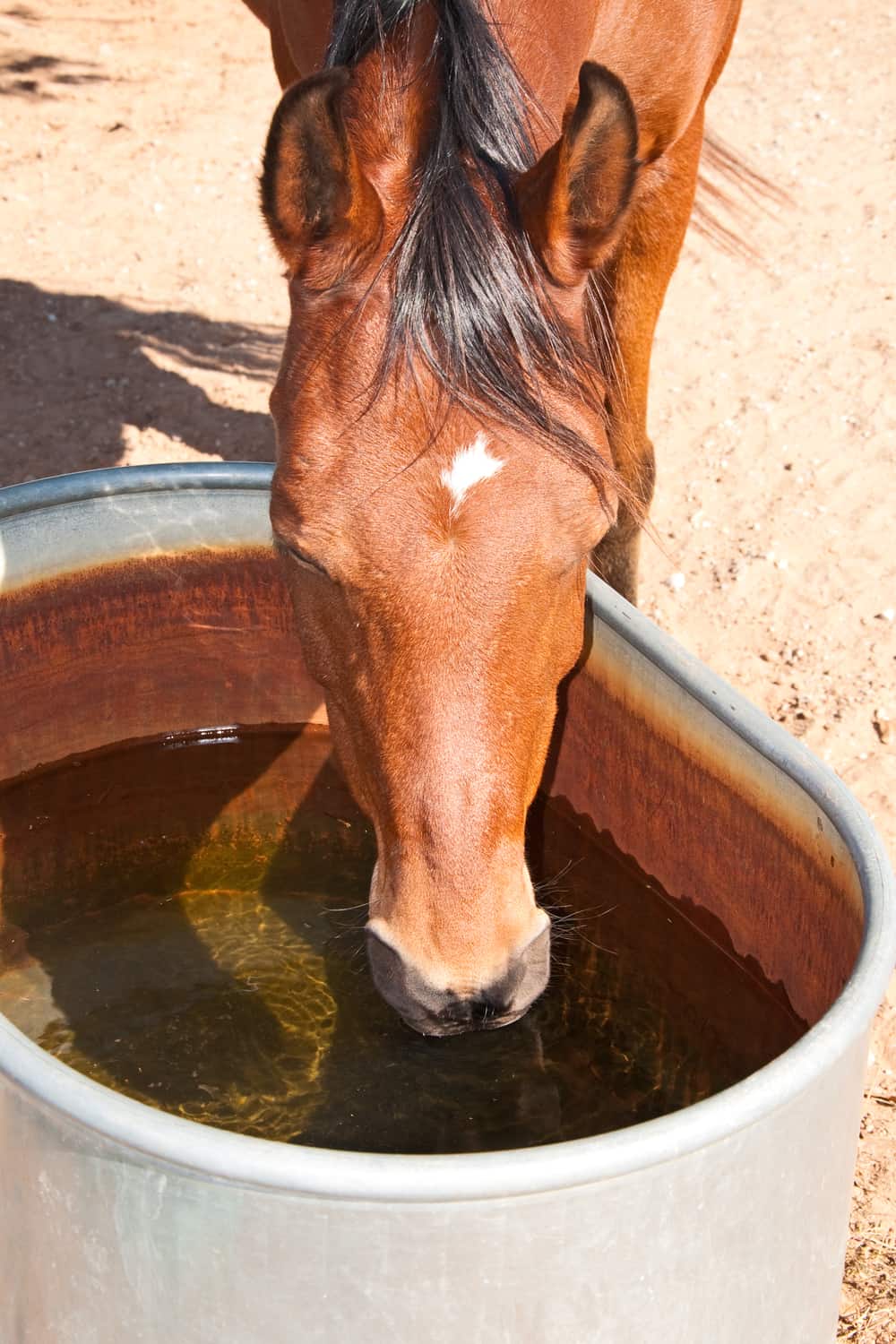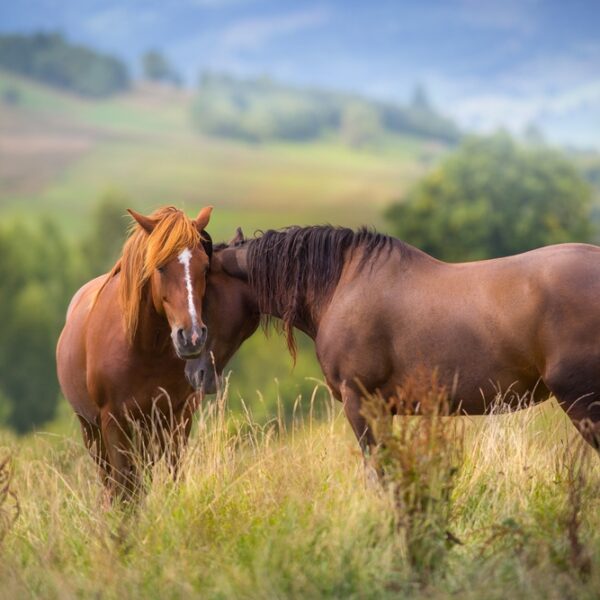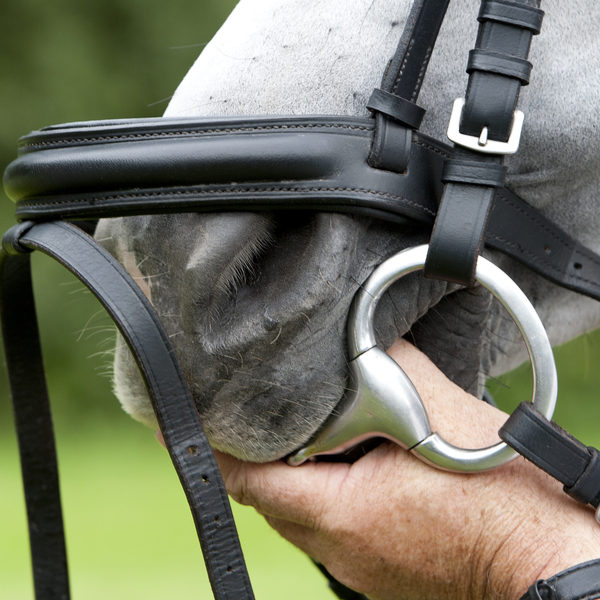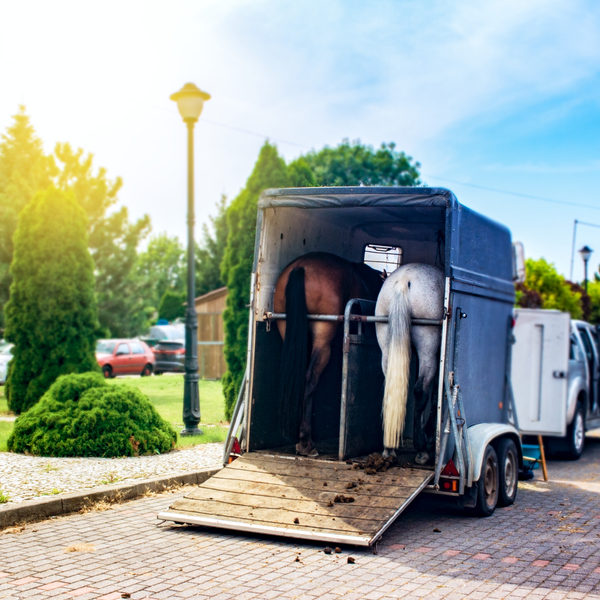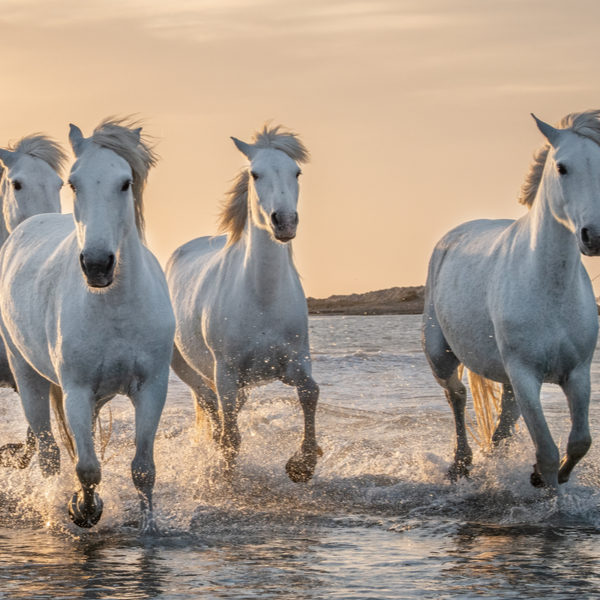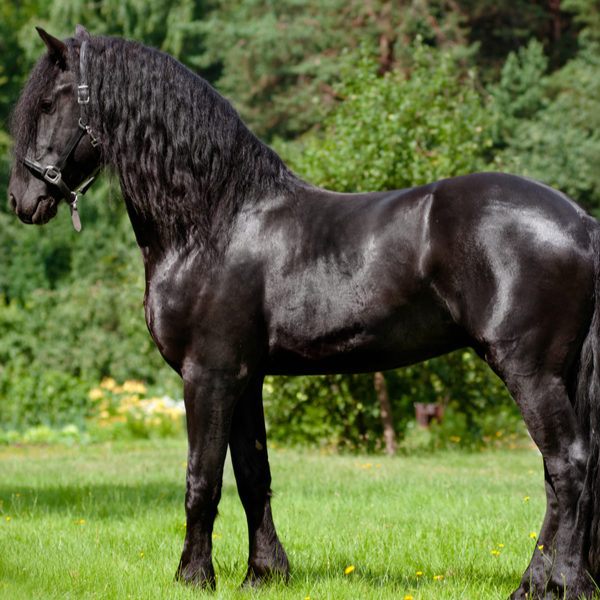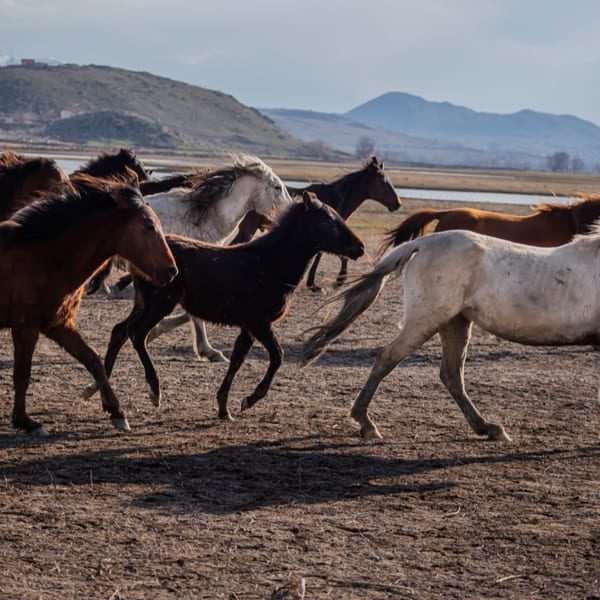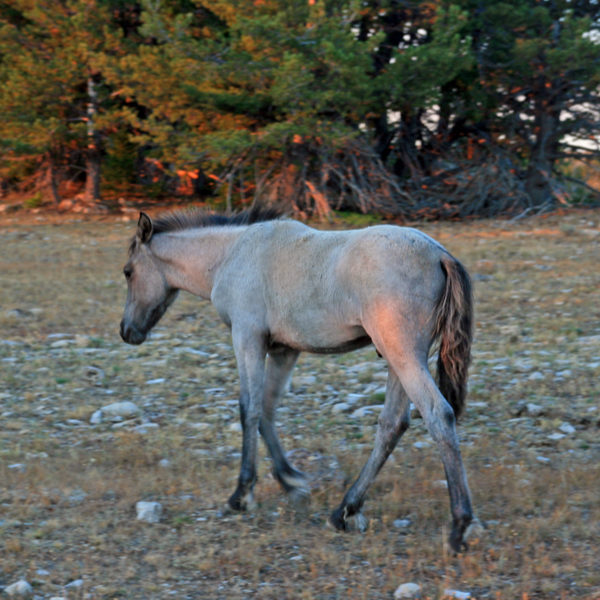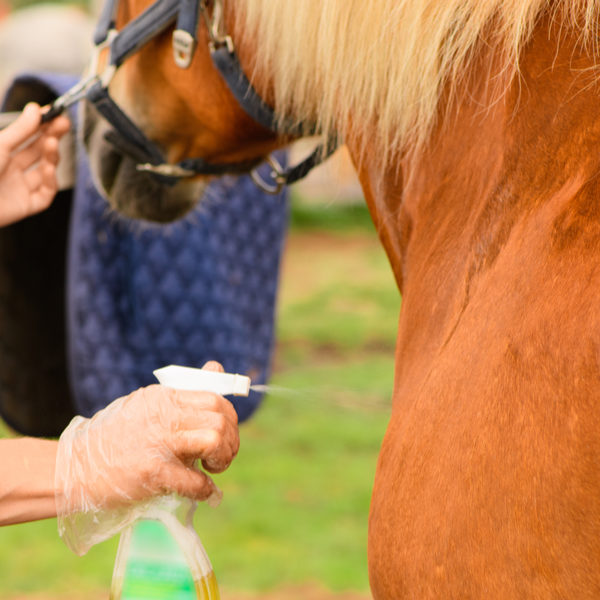Food, exercise, and lots of tender love and care are all important for a happy, healthy horse. But, without enough water, your pony’s wellbeing can quickly deteriorate. Just 48 hours are enough for signs of serious dehydration to show.
How much water your horse drinks will depend on factors such as the climate, moisture content in the food, exercise, and even the pony’s age. If this is your first time caring for a horse, this article will help you learn just how much water your horse needs to stay dehydrated.
How Much Water Does A Horse Drink?
You should provide your horse with clean, fresh water every day to avoid complications such as colic and dehydration, which may cause death. A horse starved of food but given enough water can survive up to twenty-five days but will live for just seven days if you do not give it enough water.
On average, a horse will drink 5 to 10 gallons of water a day. That said, this amount may be more or less depending on many factors—we will talk about that in a bit.
You might be wondering why horses drink so much water. There are two main reasons for this: the nature of a horse’s digestive system and sweat. Horses typically consume a high-fiber diet, which requires plenty of water to break down, move through the digestive system, and distribute to the rest of the body. If a horse does not have enough water, the high fiber hay or grass can block the digestive system, leading to colic. Colic put’s your horse’s health at risk and requires immediate medical attention.
Another reason why horses drink so much water is that they sweat a lot. Like humans, horses sweat to keep cool and regulate their body temperature. Because of this, your horse needs to drink more water than it is releasing through sweating. Remember, horses work hard, whether at the farm or shows, and as such need water to recuperate, regain their stamina, and allow their heartbeat rate to reset to normal. Ensure that your pony has access to drinking water throughout the day when participating in endurance races.
Signs of Dehydration in a Horse
Often, new horse owners don’t know just how much water their animal is drinking unless you are manually filling up buckets and feeding your horse. It helps to detect early signs of dehydration. Check for:
- A dry mouth and skin
- Sunken eyes
- Excessive production of thick saliva
- Lethargy and depression
Your veterinarian may perform a blood test to check the protein levels. A high level of proteins in the blood is an indication of dehydration. Even before bringing your pony to the vet, you can perform your simple dehydration test. Start by pinching a portion of the horse’s skin. The skin should spring back to its normal position.
But, if the skin takes some time to spring back or stays in its pinched position, the animal is severely dehydrated and required immediate veterinarian assistance.
Factors That Can Affect The Consumption of Water
As mentioned, a horse will generally consume between 5 and10 gallons of water. But, it may need more or less of this amount depending on a few factors, which we will now look at.
Temperature and Climatic Conditions
Just like us humans, horses drink more water when it is hot and may not need so much of it when the weather is cooler. But, this is only a general rule. It is common for some horses to drink large quantities of water in winter.
Your pony is most at risk for dehydration in a hot and humid climate. Heat causes the horse to sweat to regulate its body temperature. But, excessive sweating can send your pony into shock if you do not give it enough water to compensate. Both paddock and working horses can become dehydrated if left without water under extreme temperatures.
This is why I strongly recommend keeping a close eye on your own horse, and in a short time, you will get a sense of how much water it drinks when it is hot and when the temperatures drop.
Moisture Content in Pasture
Fresh grass can contain up to 70 percent moisture, making it a great source of hydration for horses. Generally, paddocked horses tend to take in more moisture from grazing pasture than working ponies fed hay and grains with low moisture content. Hay-fed horses will therefore need to drink more water to meet the recommended intake
The moisture content of pasture will vary with seasonal changes. In summer, the pasture will be dry, and the moisture content will decrease. The grass will contain more moisture at the tail end of winter and in spring. A horse might produce loose manure when it consumes pasture with high moisture content.
Amount of Activity and Exercise
Naturally, the more your horse sweat, the higher the water intake it will require. Intense activity causes the horse to lose vital minerals and vitamins, including calcium, chloride, sodium, potassium, and magnesium through sweating, and secretion of urine and feces.
Performance horses, in particular, sweat a lot and will require regular water intake to replenish the mineral and vitamin loss. Your vet might also recommend administering an electrolyte solution for horses that sweat a lot.
If you are traveling with your horse or keep it for shows, ensure that you have a way to encourage it to drink enough water. Exercise can quickly cause your horse to suffer from dehydration and even colic. Horses can sometimes refuse to drink unfamiliar water, which can increase their risk for dehydration.
The Horse’s Overall Health
A healthy horse will drink the required daily water intake. At the same time, an underlying health issue will cause your pony to refuse water or drink very little, leading to dehydration and worsening the problem. Be sure to check in with your vet if your horse isn’t drinking enough water and is showing other symptoms such as lethargy and dehydration.
Lactation is not a health problem, but it can also affect water intake. Lactating mares can drink twice the usual daily intake because of milk production and feeding. Ensure that your mare has access to enough fresh, clean water for optimal health.
Now you know the factors that can cause your horse to drink more or less water at any given time. Next, I recommend a few tips to ensure that your horse is drinking the required daily amount of water.
Tips To Ensure That Your Horse Is Drinking Enough Water
If you are caring for a horse for the first time, keep in mind these tips to keep your pony happy, healthy, and hydrated.
Avail fresh, clean water
A big mistake some people make is forcing their horses to drink dirty, contaminated water. Some animals might be just fine drinking dirty water, but this can be dangerous for equines, with a very delicate digestive system.
Unlike dogs or cats, horses do not vomit due to a valve on their stomach that prevents vomiting. So, if your pony drinks dirty water, the fluid will go straight to the digestive system, causing the horse to fall sick.
The upside is that horses can easily detect polluted water and will refuse to drink. The pony might take just a sip or two before noticing that the water is contaminated and refusing it even it is on the verge of dehydration. So, ensure that there’s always a source of clean water for your equine.
Be consistent with the water source
Interestingly, horses even refuse ‘new’ water, i.e., water that is different from the one they are used to. Equines have a strong sense of smell and taste and easily detect unfamiliar water even if the water is clean.
If you are traveling with your horse or taking it for a ride away from home, I strongly recommend bringing your water so the horse can have familiar drinking water.
Alternatively, you can flavor your home water with a small amount of molasses a few days before hitting the road with your equine. Add the molasses to the new water so the horse will not notice any difference. You can slowly reduce the amount of molasses as the horse adjusts to the new source of water.
Identify a way to measure the water intake
While you may be aware that a horse should drink 5 to 10 gallons of water every day, how can you be certain if a pony has consumed this amount of water and not less? Water troughs for horses can vary in shapes and sizes, and monitoring the water intake of a single stabled horse is relatively straightforward, as you can keep track of the number of buckets used in a day.
If you leave your horse out to graze in the paddocks or use automatic waters, it can be not easy to know just how much your equine is consuming. The best way to check is to keep an eye on the water troughs and ensure they are always filled with fresh, clean water.
Remember to check for signs of dehydration, for example, by feeling the horse’s gums for moisture or observing their pinched skin.
Summary
Owning a horse is incredibly exciting, but you must be prepared to keep your beautiful equine hydrated round the clock. As we’ve seen, horses can quickly become dehydrated, which may lead to death. Hydration is easily preventable; ensure that your equine can easily access clean, fresh, and familiar water.
